- Home
- Susan Hill
Mrs De Winter Page 10
Mrs De Winter Read online
Page 10
When I lay down the room seemed to rock beneath my bed, the walls and ceiling to shift and then dissolve into one another, but I was not ill, I knew, it was only tiredness – tiredness and a deep, exquisite relief.
I slept, as I had not slept for a week, and quite dreamlessly, and awoke to the ice blue sky and delicate frost of a northern morning.
It was sleep that I had needed – and I was sure that it had helped Maxim too, his mood was lighter, the tight lines around his eyes and mouth smoothed out, my depression through the journey of the previous day had been fleeting and superficial, and lifted with the lifting of the rain clouds.
Frank arrived just before ten, in an ancient Land Rover, full of spaniel dogs and fishing tackle behind a grille, to drive us across to the estate, and his house at Inveralloch.
‘I’m sorry,’ he said, opening the doors, ‘it’s a bit rough and ready I’m afraid – we don’t go in for refinements up here.’
I saw him glance uneasily at Maxim, elegant as always, and at my light camel skirt, but the back of the wagon had obviously been cleaned out, with rugs laid across the seat. ‘There’s such a lot of rough country to be traversed every day and in winter, of course, it’s especially difficult – we’re generally snowed up for a few weeks on either side of Christmas.’ He sounded entirely equable and cheerful about it, and looking at him, sitting easily at the wheel of the jeep, I knew that he had found his niche for life and was completely happy, the strains of the past loosed and forgotten, his old ties to Manderley quite broken.
It was a journey of over forty miles and we scarcely saw a house, apart from the odd, isolated keeper’s cottage or shooting lodge. We climbed up and over the broad backs of hills, on a narrow rutted road, as the sun rose, and all around us more hills rolled away, one behind the other, towards a distant line of mountains. The earth and the trees were a blend of colours I had never seen, only read about, the shades of tweed, heather, peaty brown and deep violet, the line of the far peaks was silver. I glanced at Maxim once or twice and saw that he was looking ahead and around him with a greater interest and eagerness than he had shown once since our return. It was new to him too, another world, there were no memories here and so he could open himself to it.
I thought, perhaps he will want to stay, perhaps we can be here then, and never have to go back, and looking around me wondered if this northern Scottish landscape could be home to us.
I think I knew at once with certainty that it could not, that we were on holiday here, to rest and be renewed and suspended somehow in time and place, and that it could not last, was not right for us. For today though, it was perfect, and we perfectly content, and that day merged into the following three, as the Scottish autumn slipped down in gold and blue and late, last sunlight, towards winter.
I had not thought ever to retrieve such happiness. Maxim was a young man again, outside for most of the day and until it was dark, fishing with Frank, going with him about the thousands of wild acres of moorland and heather hills, forest and shore, walking, riding, shooting, his face glowing with pleasure and the outdoor air, the old, gay Maxim, yet more carefree than I had ever seen him.
Their house was whitewashed and four square, on a slope opposite the great loch. From its upper windows, you could see miles over the water whose surface changed and shifted a dozen times a day, from silver to steel to troubled, thunderous grey with black at its heart. Ahead, lay the opening between the hills, where the sky lightened, and there was an island. Near to ran the silver tongue of the pebbled shore with its quay and a couple of rowing boats; behind the house the heather slopes climbed up to the open hills. The village was eight miles away and there were no near neighbours. The owner of the estate was abroad much of the time and content for Frank to oversee the place and be in charge of its scattered work force. They lived a close, frugal, family life, the little boys energetic, wiry, full of friendliness after their initial reserve with us, Janet Crawley, a surprisingly young woman with a quick wit and sharp intelligence, as well as natural warmth.
It was an idyllic time, like a bubble, containing all of us within its transparent walls. We took the boats out on the loch, rowed to the island and picnicked there, Maxim and Frank tumbling and romping with the boys, so that watching, I was light headed with my own hopes and plans. We walked for miles, Janet and I sometimes, or all of us together, the boys and the dogs tireless – outstripping the rest, and every evening Maxim and I went out alone, walking more quietly, saying little, and the ghosts shrank back into the shadows and dared not show themselves.
It was I who gave them leave, I who beckoned them, who could not let them be.
Things do not happen by chance, we make our own destiny, that was what I came to believe. If I had not spoken and not constantly been looking over my shoulder, perhaps the rest of our lives would have passed quietly, we would have been undisturbed. Yet I do not think I was to blame. I had been carrying a burden and it had seemed to grow heavier, as burdens do, until I needed to set it down or be given help to carry it. I was bewildered and troubled and afraid, yes, that above all, and it became harder to conceal.
‘It is so good to see Maxim like this,’ Frank Crawley said.
We had driven over the track that led up from the house, and the loch shore, towards the highest hills of the estate, and now we had left the jeep and were walking – he had to check on some deer; the others had stayed behind, but I had come out with him because I was growing to love this place, love simply going about it, looking, learning its moods, the changes of light and weather, letting its space and breadth and forbidding beauty impress itself on me.
Now, standing for a few moments to get our breath, we looked down to where the gleaming loch lay, calm and quiet under the early afternoon sun.
‘It’s a still beast today,’ young Fergus had said at breakfast, ‘It won’t spring.’
I was learning that the loch was alive to them, a strange, unpredictable creature, whose moods affected every day of their lives.
‘He is better than I could have imagined – so relaxed, he looks so well. Younger too – don’t you think? You should stay longer, Mrs de Winter, there’s no earthly reason why you can’t is there? The weather is settled for a week or so yet, we shan’t feel the bite of winter until November.’
I did not answer, only looked at the beauty all around me, and longed, longed for what I could not have given name to – but I suppose it was simply ordinary, unremarkable happiness, such as Frank had found.
‘When you and I talked after Mrs Lacey’s funeral – you asked me if there was any reason why you could not come back now. I’ve thought a lot about that – asked myself. And I am sure that there is not. You belong here – or rather in England, I think – I’m not sure this sort of life would suit you and Maxim. You could never go back – back there, you would be happiest – find it easiest, somewhere else – but I don’t think life abroad will satisfy you forever – I couldn’t imagine it for myself, anyway, though I know Maxim often did go to those places – and, of course, that was where he met you.’
‘Yes.’
‘But seeing him these past few days has made me realise that he is a man who belongs at home – even his sadness at Mrs Lacey’s death has not spoiled it for him has it? He really has come out from the past – it is behind him – behind both of you. If coming up here has helped, I feel content.’
Far below, some wild duck flew, skimming down on to the loch, the edges of the sky were grape coloured, the sun high, still with a touch of warmth. The midges rose in little clouds from the heather.
I had my hand deep in my pocket and my finger was rubbing along the edge of the card, to and fro, to and fro, like the edges of a sore tooth. I had carried it there, not taken it out, not looked at it again, I dared not leave it anywhere that Maxim might accidentally come upon it. I should have burned it, or torn it into tiny pieces and buried it in the ground. Why had I not?
Frank was looking at me. He had fallen silent.
&n
bsp; I walked away from him, a few paces, turned my back and looked up, to where the deer stood, great, proud, burnished things, alert, on the high slope.
If I did not speak, it would not be true. If I did not tell Frank, it would be a fancy, another nightmare.
We don’t have to burden others with our dreams; we wake and they dissolve.
If I did not speak.
I did not speak. I simply took the card out of my pocket, and handed it to Frank.
Then, because I could not bear to watch his face, I turned back to the deer again. That was the moment I saw the eagle. It is something I shall never forget, the blue sky and the silence, the astonishing silence, and then, out of nowhere, that magnificent, soaring bird, high over the crag, a sight the Crawleys had been promising us, ‘with luck,’ ever since our arrival. But it was wrong, it was spoilt, even this very rare and yet very simple joy had been tainted. I think I did not feel anything, no anger or frustration, and certainly no surprise, for was I not used to it by now?
Still, I glanced back at Frank, and saw that he had seen the bird too, and for a few seconds we watched it together as it circled lazily, easily, huge wings wide outstretched and scarcely lifting, but we did not remark on it. There was nothing, now, to say.
‘Where did this come from?’
‘I don’t know. I went by myself to visit the grave and the wreath was lying there on the grass. It was very beautiful – just white flowers set in dark green leaves. It was – exactly right.’
‘But it had not arrived in time for the funeral – we would all have seen it.’
‘Oh no. It came later. It was sent quite separately – sent or put. Yes – put – someone had placed it there – apart from all the rest. With that card. Frank – who? Who? Why?’
The questions that had danced in my head like gnats ever since.
Frank’s face was drawn and solemn. He turned the card over between his fingers once or twice. I shivered.
‘Someone wants to frighten us – or harm us.’
‘Oh, I shouldn’t have thought the latter –’ he said at once, the old Frank, anxious to reassure. ‘What reason would there be?’
‘Hatred.’
‘But no one hates you, you or Maxim – it was all such a long time ago. And –’ He looked at the card again.
‘And Rebecca is dead.’
‘Yes.’
‘Frank – we have to talk. You have to tell me – things I have not been told.’
I saw a change in his expression – that it had somehow closed up, become wary.
‘I need to know. I must protect Maxim, above all – but I must find out about this.’
‘There is really nothing to tell – no secrets. I agree with you, Maxim is happy, happier than for years. The burden has lifted – he must never find out about what is obviously just a nasty little joke.’
‘A joke?’
‘Trick, then.’
‘Mean – spiteful – hurtful – malevolent.’
‘Yes, I agree. All the same, I wouldn’t read too much into it. Would you like me to keep this and destroy it for you? It will be safer surely.’
I looked down at the white card in his hand. He was right, of course, I should simply leave him to deal with it. Kind, competent, sensible Frank. But the card drew me, I stared at the black letter and it seemed like a spell, attracting me.
‘Listen, I’m sure it will be that rotten apple, Jack Favell – he’s around somewhere still, I came upon him once during the war, saw his name in the paper to do with some nasty piece of blackmail and so forth. Exactly typical – he had a twisted, warped mind, and a black sense of humour. I wouldn’t put this past him.’
Jack Favell – I turned back to look at the crag, to steady myself, bring myself back to what was real, what was good and beautiful and true … but while we had been talking so intently, the eagle had gone. I would not see it again, I thought, I had lost it, and I would never be able to remember how fine it had looked without also remembering all this – the card, Frank’s effort at glossing over it, and now, the other name.
Jack Favell. Rebecca’s cousin, one of her men, those she had despised and amused herself with, leering, drunken Jack Favell. I remembered being alone in the morning room at Manderley with him, and the feeling he had given me when he had looked me up and down so insolently. ‘I wish I’d got a bride of three months waiting for me at home!’
‘Frank,’ I said, carefully, ‘please tell me the truth.’
‘I hope I have always done that.’
‘Are you keeping anything about – about Rebecca from me? Anything that I don’t already know from long ago?’
‘No. I can give you my word about that.’
‘Will – will this –’ I indicated the card, ‘make any difference to what we ought to do? Will it mean we can’t come home?’
I was desperate for him to make it all right, to settle our future for us, desperate to believe what he had said about the wreath being some horrible, stupid joke. Jack Favell. Yes, of course, that would be just like him. He would have laughed, spittle coming out of his mouth as he did so, at the plan, he would have got such pleasure from carrying it out. I tried to picture him writing the card, tying it on to the green circlet, getting someone to deliver it – giving them instructions, for I did not somehow think that he would have brought it to the churchyard himself.
Jack Favell. Yes, of course.
‘So long as there’s nothing for us to fear,’ I said to Frank. The sun had gone in and a bitter little wind began to cut across the heather. We were walking back towards the jeep.
‘Nothing at all. Give Maxim a little more time – stay here as long as you like and then – why don’t you hire a car and drive around England a bit, get used to it all again, see places you have never visited before?’
‘Oh, yes, Frank, what a marvellous idea! There’s no reason why we should not, is there?’
‘None that I can think of.’ He smiled with friendliness and open relief, as he handed me up into the car.
‘Thank you,’ I said, and in a sudden rush of happiness and relief, bent forwards and kissed him on the cheek, for he had given me back my peace of mind, and the anxiety and fear had receded and grown tiny, the future was secure for us again too.
He blushed scarlet and closed the door of the jeep hastily, making me smile. It was something I wished that I could tell Maxim, we could have laughed about it together; but of course, I could not. I was so relieved, Frank made me so sure everything would be all right, after all – Frank was always so good at taking worries off my mind – Frank made me see that it was all nothing – just a nasty practical joke.
Those things were never to be said, worries, trouble, fear, and the reason for them, had to be concealed.
‘I’m so glad we saw the eagle – Maxim will be jealous.’
‘Indeed –’
‘I just wish it had been – at some other moment –’
‘Yes.’
‘And that he had been there and –’
‘I understand.’
‘Frank – do you think anything else will happen –?’
‘Goodness knows. Well, he won’t have occasion for it will he?’
‘If it was Jack Favell.’
‘I’d bet money on it.’
‘Yes, yes, I expect you’re right.’
‘Put it out of your mind. I really think you must. It’s despicable but don’t let it eat into you – that would suit him only too well.’
‘No, no, I will try. Thank you, Frank.’
‘Do you feel easier about things now?’
‘Yes,’ I said. ‘Yes, of course.’ The lie came easily because I believed it myself.
We drove down the steep road towards the loch and the long, low white house, and the clouds rolled down with us, gathering in fast, so that by the time we reached the front door it was pouring with rain and we could scarcely see across to the water. Maxim was reading The Moonstone, sitting beside a bright fire, the little bo
ys were constructing a pirate hideaway in one of the old outhouses. Later, Frank would drive into Dunaig with Janet to shop. It was so quiet, so unremarkable, such a happy, secure, self-contained world. I felt safe in it, no one could reach us or touch us, I wanted to be here always.
But we could not, and besides, Frank’s idea filled my head, I had pushed away all thought of the wreath and the card, as he had told me to, and done it by elaborating on the idea of spending some time after this, in exploring, driving together down through an England we did not know. Looking, yes, I knew that was what I wanted to do – wander, and look, until we found a place. I had no notion about where or what it might be, only a certainty that when we had found it I should know.
I wanted to choose the right moment to broach it to Maxim. Not yet, I thought, sitting opposite him as he read, hearing a shout from outside, footsteps, another shout, the little boys happily at play. It will be like this, we shall have this too. Maxim glanced up, smiled, but abstractedly, deep in his book. I would not be able to reach him yet. Besides, I needed to be sure – I was so afraid of the trap snapping shut on my small, frail hopes and plans, of his refusing curtly, his mood tense and troubled once more, the past creeping up to remind him of why we should not stay, why we must flee away all over again.
Nine
But it did not. Not at first. We were allowed our time in the sun, the fates drew back and let us be, we had a reprieve, so that I was able to cherish my hopes and my dreams, curl them in my hands and warm them so that the flame from them stayed bright.
I was as happy that following week as I think I had ever been in my life. I made a tremendous effort of will, consciously, each morning I woke and each night before I slept, to suppress all thought of the wreath, and I found that with a little practice it was quite simple after all to turn my mind away and not allow it to be troubled by any thoughts of the past and what had happened – this, I said, is now, this is too precious to waste, this is our present happiness.

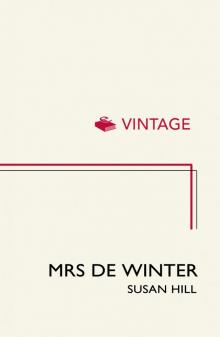 Mrs De Winter
Mrs De Winter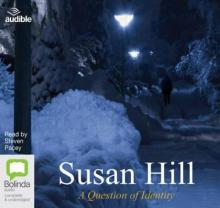 A Question of Identity
A Question of Identity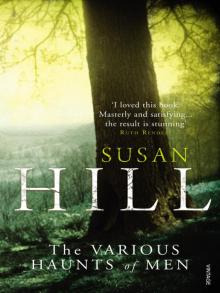 The Various Haunts of Men
The Various Haunts of Men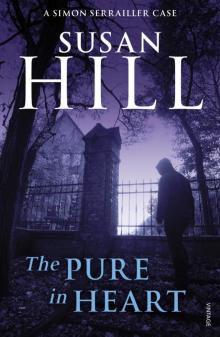 The Pure in Heart
The Pure in Heart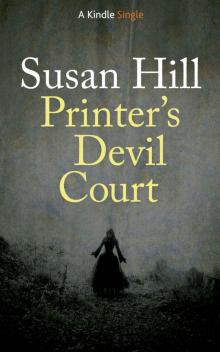 Printer's Devil Court
Printer's Devil Court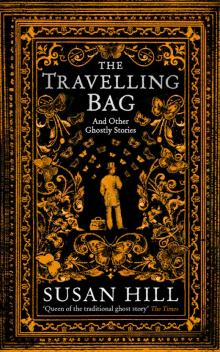 The Travelling Bag
The Travelling Bag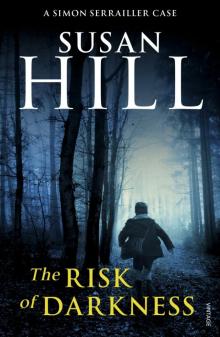 The Risk of Darkness
The Risk of Darkness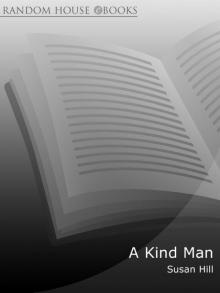 A Kind Man
A Kind Man Black Sheep
Black Sheep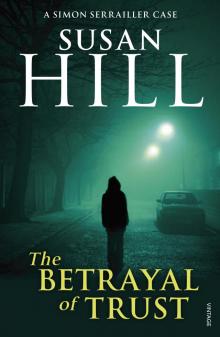 The Betrayal of Trust
The Betrayal of Trust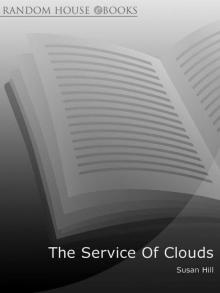 The Service of Clouds
The Service of Clouds Betrayal of Trust
Betrayal of Trust The Small Hand
The Small Hand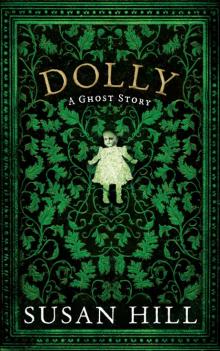 Dolly
Dolly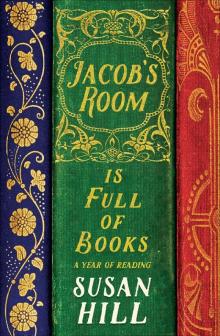 Jacob's Room Is Full of Books: A Year of Reading
Jacob's Room Is Full of Books: A Year of Reading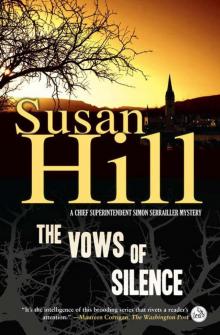 The Vows of Silence
The Vows of Silence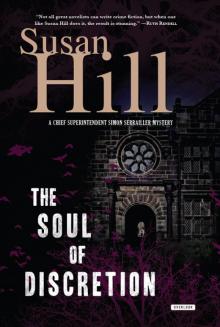 The Soul of Discretion
The Soul of Discretion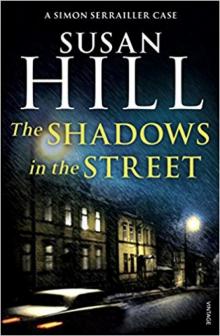 The Shadows in the Street
The Shadows in the Street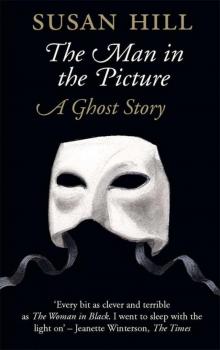 The Man in the Picture
The Man in the Picture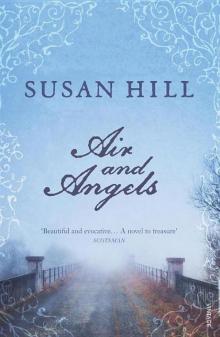 Air and Angels
Air and Angels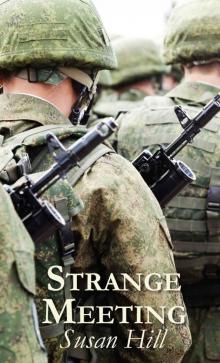 Strange Meeting
Strange Meeting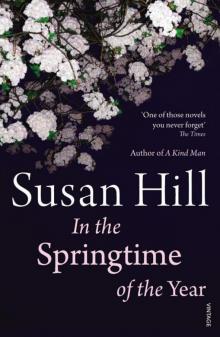 In the Springtime of the Year
In the Springtime of the Year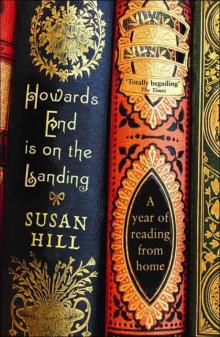 Howards End Is on the Landing: A Year of Reading From Home
Howards End Is on the Landing: A Year of Reading From Home From the Heart
From the Heart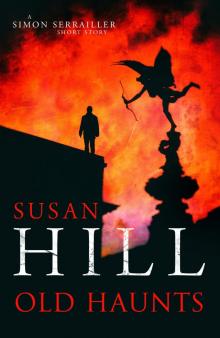 Old Haunts
Old Haunts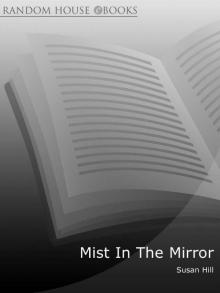 The Mist in the Mirror
The Mist in the Mirror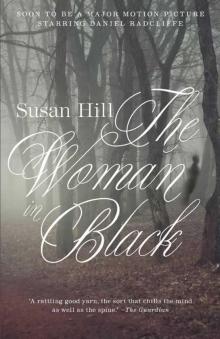 The Woman in Black: A Ghost Story
The Woman in Black: A Ghost Story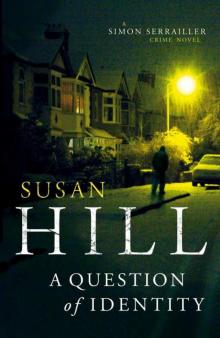 A Question of Identity (Simon Serrailler 7)
A Question of Identity (Simon Serrailler 7)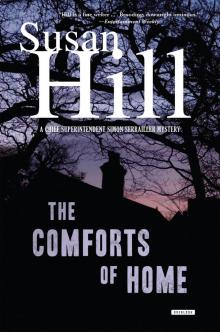 The Comforts of Home
The Comforts of Home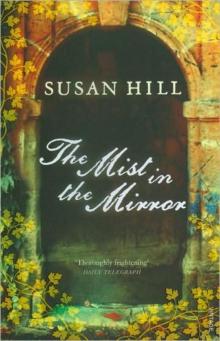 Mist in the Mirror
Mist in the Mirror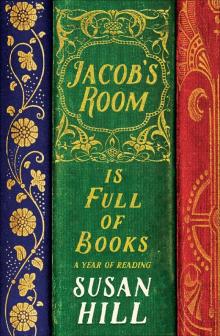 Jacob's Room is Full of Books
Jacob's Room is Full of Books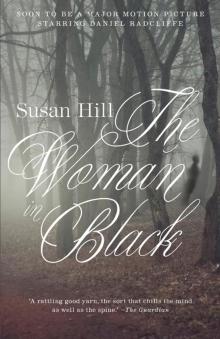 The Woman in Black
The Woman in Black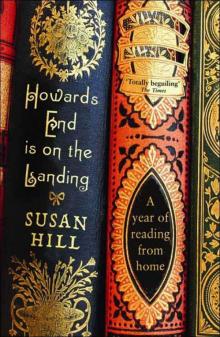 Howards End is on the Landing
Howards End is on the Landing